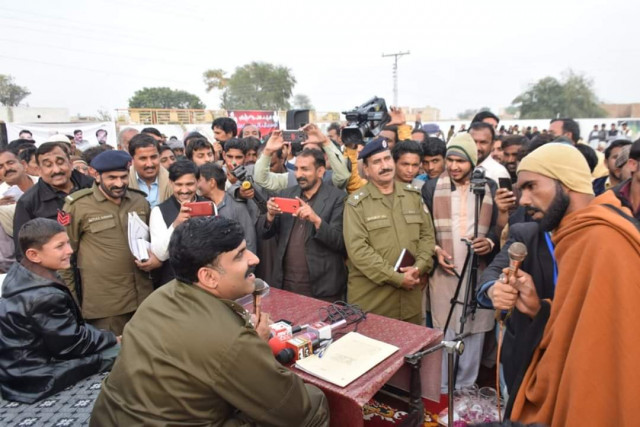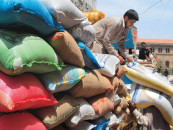Open courts untapped source of educating children
Children can learn about the legal system, community policing and how to resolve disputes in a civil manner

An open court under way in Khanewal. PHOTO: EXPRESS
Masoom believes that children should see for themselves the consequences that their actions can hold. Typically, every time children tried to sit in on local court proceedings, the elders would reprimand them and shoo them away, he says while speaking to The Express Tribune.
“Preaching alone does not help children distinguish between what is right and what is wrong; they learn through practical exposure,” he expresses. Children should be encouraged to attend open courts while growing up so that they can hone their decision making skills, learn to listen to an opposing view and also study how to come up with different solutions to a proposed problem, he maintains.
“Parents inculcate religious teachings in their offspring by having their children accompany them to mosques. In the same way, parents should also ask their children to accompany them to open courts,” he explains
The things we learn during our youth tend to stay with us for our entire lives, he says. Exposure to open courts can help children learn about various societal problems, the relationship between different members of society, prevalent norms and values and the role elders and the police play in resolving disputes, he adds.
Although children may not completely understand local court proceedings, exposing them to such gatherings will develop critical thinking skills and will urge them to ask questions. Satisfying their curious nature and making them learn at the same time will prevent children from indulging in mischievous and unhealthy activities, he says.
“Further, children can also learn about the legal system, community policing and how to resolve disputes in a civil manner,” he claims.
This practice can also help in negating the less than favourable reputation of the police, perhaps inclining them to pursue the profession in the future, the DPO says adding that children will learn to distinguish between traditional principles and the values required during today’s day and age.
Similarly, Professor Amir Sanjrani, a psychologist at Government College Civil Lines Multan says that attending open courts will help to eradicate the fear of the police from the minds of young children.
In addition, civil society has also lauded the steps taken by the Khanewal DPO. Activist Esa Ghazi says that children should not only be exposed to local courts but should also be taken to civil courts. “The children of today are the leaders of tomorrow. Leadership qualities should be instilled from a young age,” he adds.
“For majority of the children in South Punjab, clerics and mosques are the main source of education,” he reveals. Open courts will also help children in developing a positive attitude, he maintains.
On the directives of Khanewal DPO Rana Muhammad Masoom, children are encouraged to sit in on open court proceedings which take place every week. During one such open court, Masoom listened to the complaints of the children and urged them to resolve their disputes through words rather than their fists.
One of the children who sat in on the proceedings, 11-year-old Shahzeb, stated that he and other children his age only attend religious seminaries. “This is the first time that I have learnt something from the police,” he said.



















COMMENTS
Comments are moderated and generally will be posted if they are on-topic and not abusive.
For more information, please see our Comments FAQ